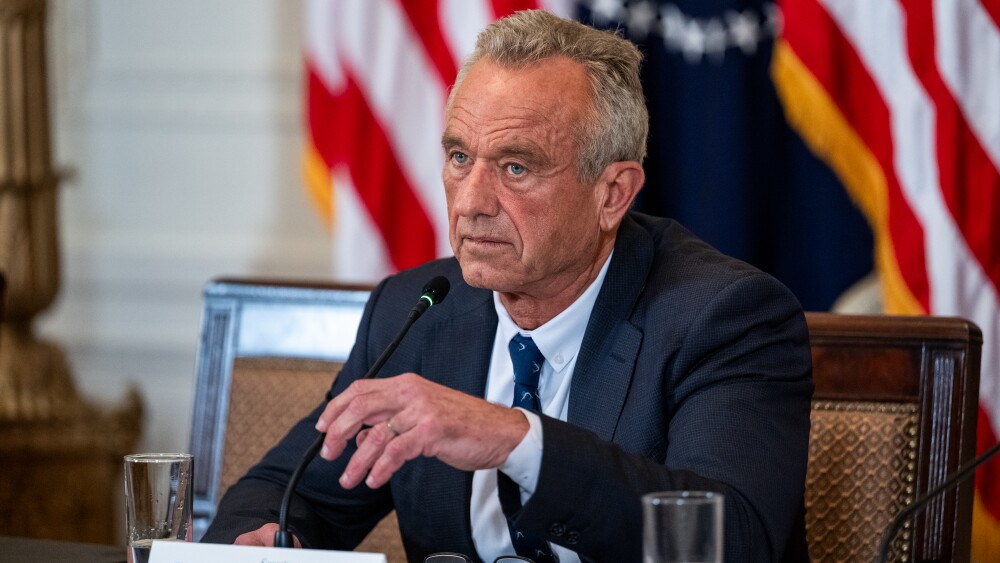Sobi announced that investigators will present data from across its rare disease and specialty care portfolio at multiple scientific meetings this Spring.
WALTHAM, Mass.--(BUSINESS WIRE)-- Sobi, an international biopharmaceutical company transforming the lives of people affected by rare diseases, announced that investigators will present data from across its rare disease and specialty care portfolio at multiple scientific meetings this Spring. These presentations will facilitate the exchange of scientific research with the immunology, hematology/oncology, pediatric and newborn screening communities.
Key presentations featuring Sobi medicines are listed in more detail below:
Clinical Immunology Society (CIS) 2019 Annual Meeting – Atlanta, GA (April 4-7)
- Emapalumab-lzsg for the Treatment of Pediatric Patients with Primary Hemophagocytic Lymphohistiocytosis (Plenary Session #4: Cross-Talk: PIDs from the Perspective of Other Specialties II); presented by Michael Jordan, M.D., Cincinnati Children’s Hospital Medical Center, on Friday, April 5, 10:00-11:30 a.m. ET
Association of Public Health Laboratories (APHL) 2019 Newborn Screening and Genetic Testing Symposium – Chicago, IL (April 7-10)
- Update on the State of Newborn Screening for Hereditary Tyrosinemia Type 1 (HT-1) in the United States (P-159); authored by A. Compton, Pharm.D., B. Filas, Ph.D., and C. Satler, M.D., Sobi, Inc. Available for viewing beginning Sunday, April 7, 3:30 p.m. CT
Pediatric Academic Societies (PAS) Meeting – Baltimore, MD (April 27-30)
- Neonatal Infectious Diseases/Immunology: Respiratory Viral Infections; Monday, April 29; 5:45-7:30 p.m. ET
- The Prevalence of Diagnosed Chronic Lung Disease in US Infants by Gestational Age: Implications for RSV Policy (Poster; Kunjana Mavunda, M.D., Kidz Medical Services, et. al.)
- Impact of the 2014 American Academy of Pediatrics Policy on Respiratory Syncytial Virus Hospitalization Rates for Preterm Infants <29 Weeks Gestational Age at Birth: 2012–2016 (Poster; Mitchell Goldstein, M.D., Loma Linda University Children's Hospital, et. al.)
- Severity and Costs of Respiratory Syncytial Virus and Bronchiolitis Hospitalization in Preterm and Term Infants Before and After the 2014 American Academy of Pediatrics Policy Change on Immunoprophylaxis (Poster; Leonard Krilov, M.D., NYU Winthrop, et. al.)
- Respiratory syncytial virus hospitalization rates among term and preterm infants before and after changes to the American Academy of Pediatrics policy on immunoprophylaxis: 2011–2017 (Poster; Jaime Fergie, M.D., Driscoll Children’s Hospital, et. al.)
- Why does the incidence of respiratory syncytial virus hospitalization peak during the second month and not the first month of life? Insights from a large US study of infants 29–35 weeks gestational age (Poster; John DeVincenzo, M.D., University of Tennessee Health Science Center, et. al.)
The American Society of Pediatric Hematology/Oncology (ASPHO) Conference – New Orleans, LA (May 1-4)
- Emapalumab in Pediatric Patients with Primary Hemophagocytic Lymphohistiocytosis: Safety & Efficacy (ID: 2005; Session: Leukemia); authored by Carl Allen, M.D., Texas Children’s Hospital, et. al.; Thursday, May 2, 3:15-4:15 p.m. CT
About primary hemophagocytic lymphohistiocytosis (HLH)
Primary hemophagocytic lymphohistiocytosis (HLH) is an ultra-rare, rapidly progressive, often-fatal syndrome of hyperinflammation in which massive hyperproduction of interferon gamma (IFNy) is thought to drive immune system hyperactivation, ultimately leading to organ failures. It is estimated that fewer than 100 cases of primary HLH are diagnosed each year in the US, but this is believed to represent underdiagnosis. Diagnosis is challenging due to the variability in signs and symptoms, which may include fevers, swelling of the liver and spleen, severe low red and white blood cell counts, bleeding disorders, infections, neurological symptoms, organ dysfunction and organ failure. Primary HLH can rapidly become fatal if left untreated, with median survival of less than two months. The immediate goal of treatment is to quickly control the hyperinflammation and to prepare for hematopoietic stem-cell transplant. The current conventional treatment prior to transplant includes steroids and chemotherapy, and is not specifically approved to treat primary HLH.
About Emapalumab
Emapalumab is a monoclonal antibody (mAb) that binds to and neutralises interferon gamma (IFNγ). In the US, emapalumab is available as Gamifant and is indicated for pediatric (newborn and older) and adult primary hemophagocytic lymphohistiocytosis (HLH) patients with refractory, recurrent or progressive disease, or intolerance to conventional HLH therapy. The FDA approval is based on data from the phase 2/3 studies (NCT01818492 and NCT02069899). Emapalumab is indicated to be administered through intravenous (IV) infusion over one hour twice per week until hematopoietic stem cell transplant. Emapalumab was developed and submitted for approval to the FDA by Novimmune. Sobi acquired the global rights to emapalumab from Novimmune through an exclusive licensing agreement announced in July 2018.
About hereditary tyrosinemia (HT-1)
Hereditary tyrosinemia type 1 (HT-1) is an extremely rare but treatable hereditary disorder. When a child has HT-1, their body lacks the enzymes needed to break down the amino acid tyrosine. High levels of tyrosine can build up in the blood and form toxic substances in the liver, kidneys and central nervous system, which can cause liver, renal and neurological complications. Approximately 1,000 persons worldwide are identified as living with HT-1 today.
About Respiratory Syncytial Virus (RSV)
Respiratory syncytial virus (RSV) is the most common cause of lower respiratory tract infection (LRTI) in infants and young children worldwide, and 90% of children are infected with RSV in the first two years of life. Of those, up to 40% will experience a LRTI with the initial episode, making the development and availability of effective prevention methods a critical public health priority.1
About Palivizumab
Palivizumab is a RSV F protein inhibitor monoclonal antibody (mAb) that acts as a prophylaxis against serious RSV disease.2 In the US, palivizumab is available as Synagis and is indicated for the prevention of serious LRTI caused by RSV in three pediatric patient populations: 1) children born prematurely (at or before 35 weeks) and who are 6 months of age or less at the beginning of RSV season; 2) children who have a chronic lung condition called bronchopulmonary dysplasia (BPD), that needed medical treatment within the last 6 months, and who are 24 months of age or less at the beginning of RSV season; OR 3) children born with certain types of heart disease and who are 24 months of age or less at the beginning of RSV season. It is the only medicine approved for the prevention of serious RSV disease.3
About Sobi in North America
As the North American affiliate of international biopharmaceutical company Sobi™, our team is committed to Sobi’s vision of providing sustainable access to innovative therapies and transforming the lives of people affected by rare diseases. We bring something rare to rare diseases – a belief in the strength of focus, the power of agility and the potential of the people we are dedicated to serving. Our product portfolio includes multiple approved treatments, focused on immunology and genetics/metabolism. With North American headquarters in the Boston area, Canadian headquarters in the Toronto area, and field sales, medical and market access representatives spanning North America, our growing team has a proven track record of commercial excellence. More information is available at www.sobi-northamerica.com. For more information about Sobi, visit www.sobi.com.
References
1. Adamko DJ, Friesen M. Why does respiratory syncytial virus appear to cause asthma? Journal of Allergy and Clinical Immunology. 2012;130(1):101-102. doi:10.1016/j.jaci.2012.05.024.
2. Synagis (palivizumab) US prescribing information.
3. Villafana, T. et al. Expert Review of Vaccines 2017
View source version on businesswire.com: https://www.businesswire.com/news/home/20190404005053/en/
Contacts
Trista Morrison
781-810-0490
trista.morrison@sobi.com
Source: Sobi






